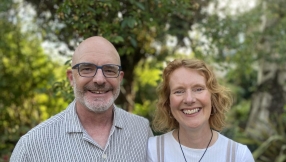ACT Intl' Tsunami Relief in Sri Lanka Progresses despite Rebel Violence
Action by Churches Together (ACT) International have appealed for a greater global awareness for tsunami-battered Sri Lanka, where violence triggered by the unrest between the Sri Lankan government and Tamil Tiger rebels is prevalent.
While the social instability may have intensified the grief of victims, post-tsunami Sri Lanka is recovering well from the disaster both in physical and spiritual aspects under the cooperated relief work of churches and NGOs.
Yesterday’s news release from ACT Intl’ gave a report on the situation in the northern areas of Sri Lanka, which is controlled by the Liberation Tigers of Tamil Eelam (LTTE), commonly known as the Tamil Tigers since the civil war ended in 2002.
The National Christian Council of Sri Lanka (NCCSL), a member of Action by Churches Together (ACT) International, a global alliance of churches and related agencies, is working in the area between the border and Killinochchi, along with many major international humanitarian aid organisations.
Mullaittivu is the town in the northern region that was most affected by the tsunami. Many residents of this area left their homes behind because of the war years ago and now their shelters have been destroyed by the tsunami. Almost 23,000 people are currently taking refuge in camps or in relatives’ homes in the Mullaittivu district.
Rev. Jr. A.L. Lakshendrakumar, the local coordinator of NCCSL has stationed in Mullaittivu for the relief work since 27th December, the day after the tsunami struck. In the Tamil-controlled area, all humanitarian activities are coordinated by the Tamil Rehabilitation Organisation. He commented that the rebuilding activities in such regions seem quite organised.
"It is not a surprise," says Lakshendrakumar, "since the international NGOs have been working in this part of the country for many years, supplying the refugee camps of the war and reconstructing the districts of Killinochchi and Mullaittivu. So we could react quickly and effectively."
Since the tsunami, three vans of relief supplies have been sent to the region through NCCSL with the support of ACT members around the world. They carried clothes, drinking water, pots, hygienic kits and tents for the displaced people. ACT has also paid special care to the needs of children as many students died in the tsunami.
A local teacher testified that a lot of time is spent talking with students and encouraging them to express their thoughts by painting. She agrees with the local pastor and Lakshendrakumar that there is an urgent need for psycho-social assistance to help the children work through their shock.
Lakshendrakumar appeals for school uniforms and kits and bicycles for the transportation of children.
Another ACT member in Sri Lanka, the Jaffna Diocese of the Church of South India, plans to reconstruct 1,000 houses in the Mullaitivu district.
As worldwide aid agencies declare that tsunami-hit countries have entered the rehabilitation phase, the ACT members in South East Asia now are urging people across the world to continue their response. A recently revised appeal asks for US$75.3 million in funding from ACT members, $17.5 million of which is for Sri Lanka.
Currently in Sri Lanka, peace is very volatile. Norway's special peace envoy Erik Solheim visited Sri Lanka on Saturday for talks on tsunami relief as well as the peace process. However, the mission ended in deadlock in peace negotiations between Tamil Tiger rebels and the government.
On Monday, Prince Charles toured Sri Lanka's tsunami-hit eastern district of Batticaloa, on his way to Australia. He was moved on seeing the devastation and speaking with fishermen who survived the thundering waves. He also assured Sri Lankan President Chandrika Kumaratunga that Britain would continue to provide "livelihood support".













